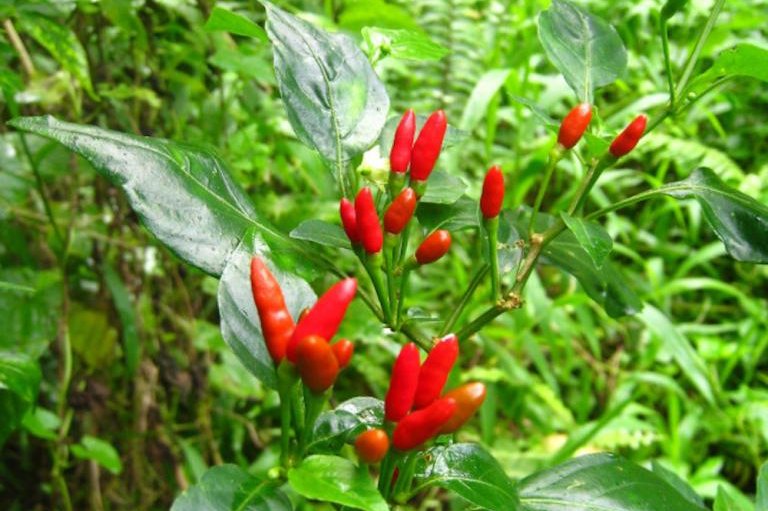The donne’ sali chili plant is difficult to cultivate but grows wild among the forests of the North Pacific's Mariana Islands. Photo by Monika Egerer/ISU
Feb. 28 (UPI) -- Birds with a taste for spice help spread the seeds of rare wild chili peppers, according to new research.
When a team of scientists set out to better understand the mutually beneficial relationships formed between fruit-bearing plants and fruit-eating species, they turned their attention to the wild chilis of the Mariana Islands in the North Pacific.
The donne' sali chili plant grows wild on the islands and is a favorite food of local birds. The draw for the birds is obvious -- the chilis offer vital calories. But what's in it for the chili plant?
Scientists hypothesized that passage through the digestive tract might make the chili seeds more likely to germinate.
Researchers used video footage to identify the bird species that eat the most chilis. In the lab, scientists studied seeds digested by captive specimens of the same bird species.
Their analysis -- detailed in the journal Ecological Applications -- showed the passage through the bird's intestines helps separate the seeds from the pulp of the fruits, improving the odds of germination when it makes its way to the forest floor.
Scientists measured germination rates of seeds excreted by various bird species. They found seeds passed by starlings boasted a statistically significant germination rate boost. The chili plant's name includes the local name for the Micronesian starling, "sali."
On the island of Guam, where starlings have lost out to an invasive snake, the donne' sali chili plant is much less abundant -- a reminder of the important role fruit-eaters play in seed dispersal.
"This study teaches us about a mutualism that directly benefits people and should bolster our reasons to care about conserving biodiversity," Evan Fricke, a postdoctoral research associate at Iowa State University, said in a news release. "The loss of a bird in Guam, for instance, can cascade into a negative impact for people who like to eat these spicy chilies."















